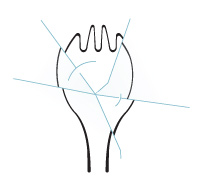STILLPOINT Archive: last updated 05/25/2012
 Informative fauxlosophy from a recent alum: Installation 14
Informative fauxlosophy from a recent alum: Installation 14
1. I live in Amesbury, and my plants are dying.
Amesbury has identity issues. Its bucolic side is home to vineyards, farms, and the birthplace of poet John Greenleaf Whittier. Its businesses, however, parade with the gentrified urbanity of its sister, Newburyport. Here, Amesbury feels like the younger sibling, jealous that Newburyport got a date to the prom, and we’re still looking at an old yearbook.
2. I’m turning 30 this year, I’ve recently returned to Gordon as both a staff and faculty member, and then there’s still that I-have-a-son thing. I would call this a transition year, but I’m not sure there’s been a time in the last decade when I’ve had any clue where I’d be a year from where I currently stood. At what point does “transition” become just my version of same-old, same-old?
3. We moved to Amesbury because it is the middle point linking our old place in Dover, NH, and Gordon. It’s as if we got stuck between where we were, and where we are trying to go. We moved, and it seems we’re still moving. In fact, there’s a strong chance that by the time this column sees print, we’ll have moved to Beverly to be closer to work and friends.
4. I’ve been unpacking photographs. Here’s one:
My father, Alfred Parys, is flying over the tip of Cape Cod in 1963. He is 14. The curve of the earth is visible, cutting a graying arc against the sky. The view from the plane is oddly house-like, the window squared and large—not the stunted monocles of a 747. It is as if he were sitting on a couch in a living room, gazing over the surface of a sepia, backyard moon. Alfred soars, peephole pressed against the ridge of his eye socket, searching for just the right moment to click the button, expose the aperture, and stop moving forever. I don’t know his destination, but I like to think that neither of us—me now, him then—cares about that part.
5. I am sitting on a rock in the Gordon Woods, and it feels like no one has ever sat here. The crushed cans tell me otherwise. December snow covers a dueling set of bicycle tracks frozen into the mud. The snow has fallen lightly, and it has recreated each track’s rise and divot so perfectly that there is no difference between movement that is past, and movement that is still happening.
6. When Natalie, our son Alfie, and I attend the Amesbury Christmas parade, we really have no idea what is going on. Every emergency vehicle in town is crawling down the otherwise empty Main St., sirens blaring full-tilt. My guess is that its purpose is to entertain the small fraction of boys going through a truck phase, and not the majority of the crowd that has learned to associate these noises with utter catastrophe.
Following the emergency vehicles are a few shoddy Boy Scout floats, and that one retired guy who’s very, very proud of his ’57 Chevy.
And, bringing up the rear, there’s a Santa Claus cocking and unloading a rifle into the air while bellowing his ho-ho-ho’s.
7. I am a parade of slow emergencies.
Natalie and I have moved eleven times in less than eight years. I desperately want the next place to stick, the plane to land, finally, and clear up the foggy dream world of what-I’d-like-to-be-someday.
8. Which is better: to be the tracks that have frozen in place, or the outline, created by the falling snow?
9. Sometimes, after you’ve moved to a new place, unpacking can take so long, it begins to feel normal. And then, the placing of fragments out for all to see becomes the only way to make sense of where you were, and where you hope to stay. The fragments go together, but you may not be the one to arrange them. Perhaps the best thing is just to lay the trinkets out on the rug and step back.
10. I want to move and be moved. The difference, I swear to you, is not that big.
bryan parys works in the Gordon Education Department, and teaches creative writing in the English Department. He is at work on a memoir on faith, doubt and other things that keep him awake at night.
[email protected]
| Share this story: |   |
NEXT: Motivator: Professor Charles Matheson's Enduring Influence